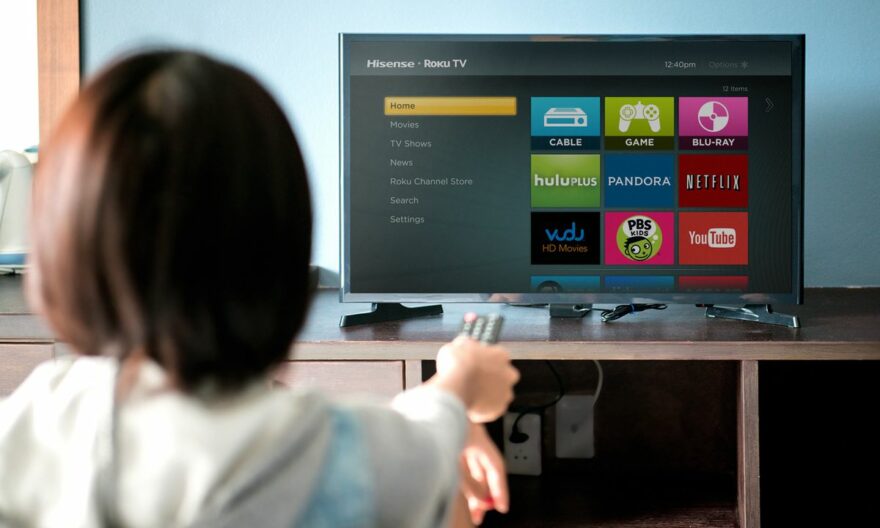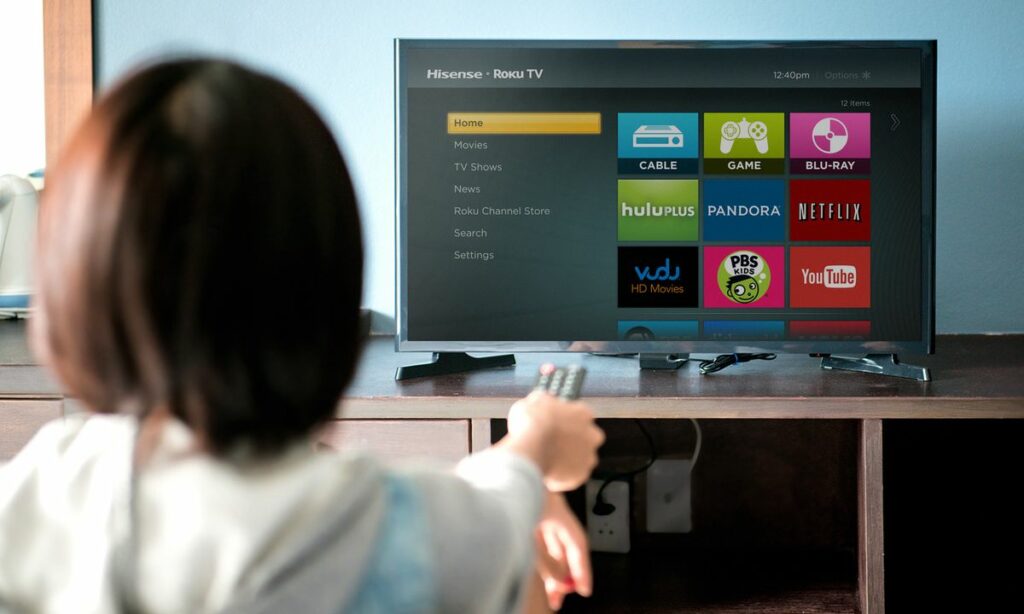Smart TVs have become a common sight in many homes in the digital age. And the services they offer are about much more than just television channels — they come with streaming services, games, remote control, voice assistance, and social media. But in the wake of all those great features is a nagging question: Can your smart TV be hacked?
The short answer is yes. The more nestled in our televisions become, the more exposed they are. Hackers can use security vulnerabilities to spy on you, take your personal information or remotely control your device.
This article goes into the risks and measures surrounding smart TV hacking nicely, and it’ll give you the insights to keep safe in 2025.
The Hidden Risks Behind Smart TV Connectivity
Smart TVs can be connected to the internet using Wi-Fi or Ethernet, and they might be compatible with other smart devices in your home. This creates economies of scale, but also multiplies the range of cyber risks. All smart TVs have system software that can be hacked, particularly if it’s out of date or has encrypted passwords.
Many smart TVs run operating systems such as Android TV, WebOS, or Tizen. Like any OS, they are vulnerable to malware, ransomware and phishing attacks. In some cases previously reported, hackers invaded a TV entirely, changed TV channels, and raised the volume. They have even spied on users by hacking built-in cameras and microphones.
What if you were watching a movie, and your screen suddenly turned to another app, or if a voice command that you did not say was recorded and sent to a third-party server? These are not purely speculative science fiction scenarios — they have already occurred and remain a concern.
Common Methods Hackers Use to Compromise Smart TVs
How, then, do hackers break into your smart TV? It is usually by way of a vulnerability in the software or benign network security.
Most typically, it’s from unsecure Wi-Fi networks. When your home wireless network isn’t protected by a password, or uses a weak encryption standard instead of a strong one (such as WEP instead of WPA2 or WPA3), it’s a snap for trespassers to worm their way into all the devices on the network — including your smart TV.
The other way is through rogue apps. Lots of TVs permit you to install third-party apps. As a result, if you’re not paying attention to where these apps are coming from, you could unwittingly install some spyware or malware. Even well-meaning apps can be dangerous if their servers are infected.
Then there is the danger of phishing. The browser on a smart TV might ask for login credentials or payment information. Hackers can create fake copies of popular streaming apps like Netflix or Hulu in order to lure users into sharing sensitive information.
Finally, some hackers resort to tactics such as DNS hijacking. In this process, the attacker modifies your TV’s internet settings so the device’s traffic is redirected to malicious sites where data can be intercepted.
What Hackers Want from Your Smart TV
You may ask: Why would anyone hack a TV? It’s not like it contains your banking information or personal files, does it? Well, it’s more than you might imagine.
For one, your smart TV can serve as a jumping-off point to other connected devices. Once inside your network, hackers could probe further and reach laptops, smartphones and smart appliances. Your account details, including saved passwords and photos, may be at stake.
In some cases, attackers may just want to spy. Smart TVs can serve as surveillance tools. With microphones and cameras, smart TVs can be turned into listening and viewing devices. Hackers have reportedly turned on cameras remotely to spy on users without their knowledge.
Another motivation is data collection. Some TV devices gather data on how they are used to make better recommendations. If this information is not secured, hackers can sell it on the dark web, where it allows them to see your habits, preferences and even location.
Some more serious intrusions are using your TV’s processing power to mine cryptocurrency without your knowledge, a practice called cryptojacking. This makes for slower performance — you may not even know it was happening until your device crashes or overheats.
How to Know If Your Smart TV Has Been Hacked
Smart TV hacks are often silent, but there are some signs to watch for:
- Unusual behavior: Your TV turns on or off by itself, apps open randomly, or volume changes without input.
- Login issues: You get alerts for login attempts from unknown locations, or your streaming service accounts are compromised.
- New apps appear: If apps are installed without your knowledge, it could indicate tampering.
- Pop-ups and ads: An increase in on-screen pop-ups, especially ones that ask for login or payment details, is a red flag.
- Performance issues: Lagging, freezing, or frequent crashes could signal that unauthorized software is running in the background.
If you notice any of these, it’s time to act quickly. Run a factory reset and change all passwords linked to your TV and home Wi-Fi network.
Tips to Protect Your Smart TV from Cyber Attacks
There is no need for technical expertise to keep yourself safe–just knowledge and a few good habits.
- Frequently update firmware: New patches are being developed all the time by smart TV manufacturers to fix cybersecurity holes. Ensure your device automatically updates, or manually update once a month.
- Strong Wi-Fi Security: If your router supports it, enable WPA3, and pick a strong, unique password. Do not use default network and admin names and passwords.
- Turn off unused features: If you don’t use voice control or the camera, turn these off. On certain TVs, you can even deactivate the microphone completely from the settings menu.
- Review app permissions: Only download apps from official app stores or reputable sources. Take away permissions that seem excessive —is there really a good reason a photo app needs your mic?
- Use a guest network: Ensure that your smart TV is on a different network from your personal devices. This will block any possible breach.
Skip logging into sensitive accounts: It’s best not to log in to banking or email accounts via the browser on your TV. For those activities, use a more secure device.
When you’re not watching the TV, turn it off: Simple as it sounds, switching off the TV can reduce your exposure. It also cuts off any attempts at ongoing surveillance via a hacked camera.
When to Call the Pros for Help
If you have tried resetting your smart TV, locked down your network, deleted suspect apps, and still notice odd behavior, it is time to bring in the pros. This is when you need “Expert TV Repair Services”.
Some smart TV issues aren’t easily or quickly fixed with settings. If the firmware has been compromised, if deep seated malware has been installed, or if something is physically wrong inside your device, you might need to dig in and make some repairs.
At a professional service, your firmware will be reflashed, and advanced issues will be diagnosed and your TV will be set up for safe and secure operation. This is especially important if your TV is out of warranty, and you don’t want to shell out for a new set at the moment.
After all, a quality-oriented accessories and remotes company like “Upixinc” advises you keep your gizmos updated and secure too. A dependable remote won’t be very useful if nefarious actors have control of your TV from within.
Final Thoughts: Stay Informed, Stay Secure
The world of smart TVs is just too exciting, with no end to possibilities for entertainment and convenience. But this ease of use comes with responsibility. Knowing the risks and how to protect your gear is key to unlocking everything a smart home has to offer.
The threat evolves along with the technology. Cybersecurity is no longer just about protecting laptops or your work computer at the office; there are lot of devices in our lives now, group video chat cameras included, and they all need protection. But with some vigilance and a few proactive measures, you can also have an enjoyable and safe experience with your smart TV.
And so, the next time you plant yourself in front of a Netflix binge or hunt for a new TV remote by TV remote online shopping, know that it’s all in the name of security. For all that, the smartest component of any smart gadget is likely you.



3 thoughts on “Can Your Smart TV Be Hacked? What You Need to Know”